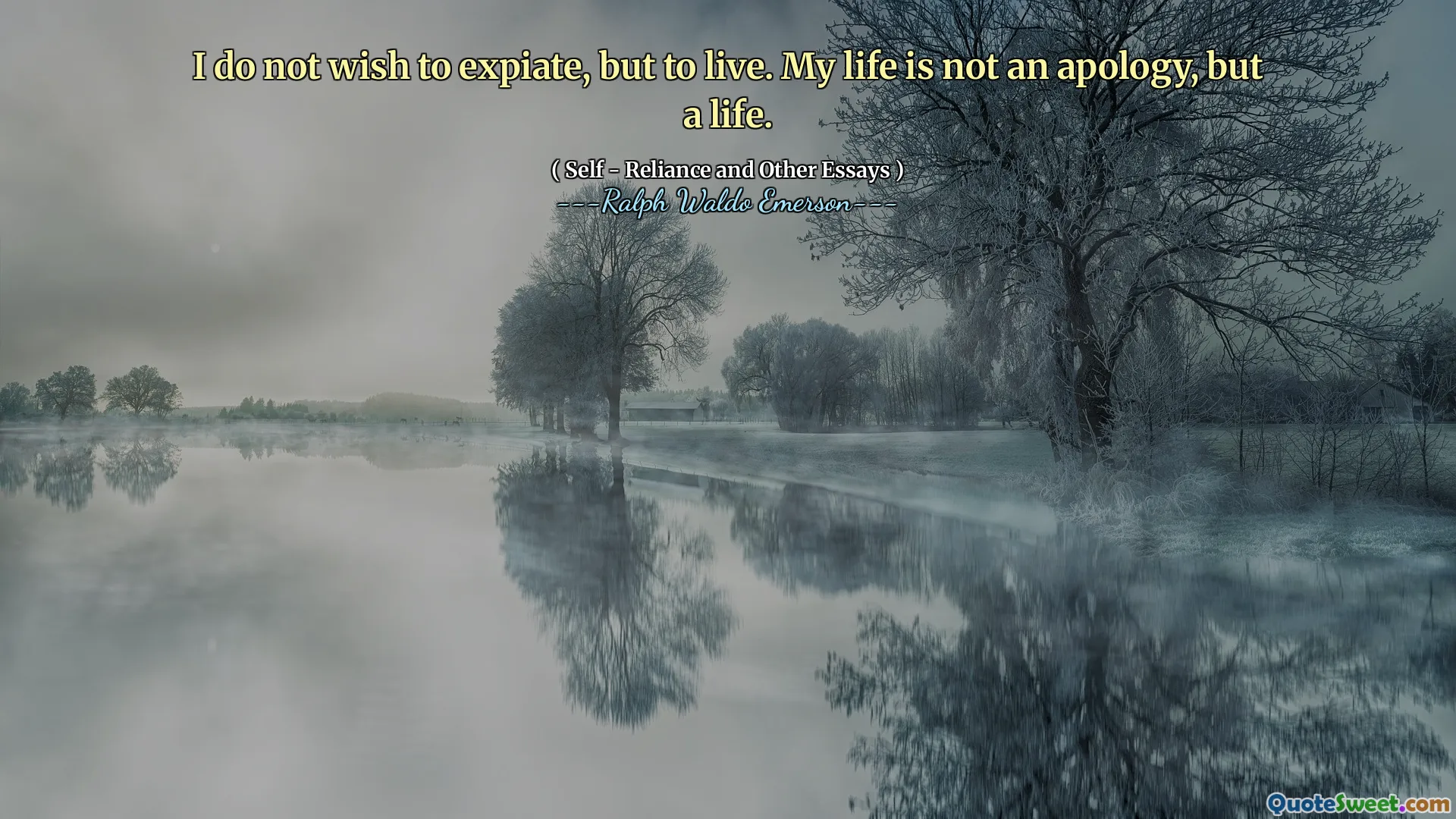
I do not wish to expiate, but to live. My life is not an apology, but a life.
This profound statement by Ralph Waldo Emerson emphasizes the importance of authentic living over seeking forgiveness or justification for one's existence. It advocates for embracing life fully, with all its imperfections, rather than spending energy trying to amend or explain oneself. In a society often preoccupied with appearances, shame, or the need for validation, Emerson’s words serve as a reminder to honor our own journeys without undue concern for societal judgments or internal apologies. Living authentically involves accepting our flaws, mistakes, and inherent rudeness or ugliness, recognizing that these are part of what makes us uniquely human. Instead of trying to conform to external standards or seeking to erase our true selves, the emphasis is on honest engagement with life’s experiences. This perspective fosters a sense of empowerment, encouraging individuals to act according to their inner convictions rather than societal expectations. When we stop viewing ourselves as objects needing forgiveness or redemption, we open space for genuine self-expression and growth. The notion that life itself is to be lived fully, unapologetically, aligns closely with ideals of self-reliance and personal integrity. It challenges each of us to consider how much of our energy is spent on justifying ourselves versus truly experiencing and embracing the moment. Ultimately, Emerson’s words inspire us to discard unnecessary guilt and shame, and instead cultivate a spirit of courageous acceptance and bold authenticity in our daily lives.


